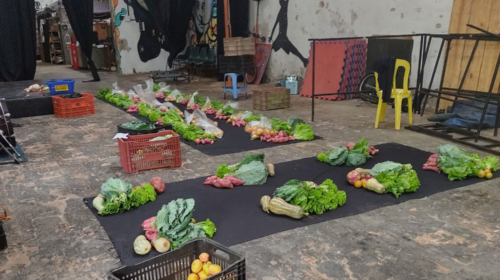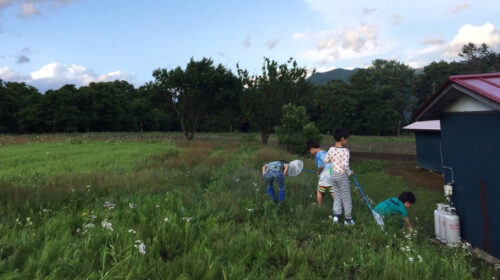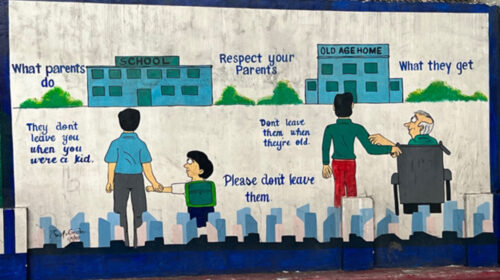Blog

Time Poverty and Climate Shocks: How Married Women Bear the Brunt
As climate events like floods, droughts, and heatwaves intensify, their effects ripple beyond economic poverty and damage to physical assets. Emerging research sheds light on how these environmental crises impact women’s well-being. A crucial yet overlooked aspect is women’s time use, which often reflects social norms. My research dives into this vital area and reveals how climate shocks are driving married women deeper into time poverty in India.

Why Valuing Care Work is Essential for a Fairer Economy
Unpaid care work is the hidden backbone of every economy. It sustains families, facilitates paid employment, and enhances human well-being, yet remains largely unrecognized in official economic statistics. In Sri Lanka, this work is gaining attention, championed by the new Prime Minister Dr. Harini Amarasuriya, who emphasized its importance in her inaugural parliamentary address.

Women’s Time Use between Paid and Unpaid Work in India
Women carry out a large share of the total unpaid work which leaves them very less time to engage in paid employment in India. This work tries to understand if there is a reduction in unpaid work when women engage in paid employment.

Migrant Men in Care: Navigating Masculinity and Global Inequities
The participation of migrant men in care work challenges traditional gender norms, prompting a redefinition of masculinity as they balance both physical and emotional caregiving. This shift calls for a more inclusive understanding of care, while acknowledging the structural inequalities that continue to shape the global care economy.

The body-territory as politics of care. Exploring connections between popular struggles and diverse ontologies
This blog post aims to explore the connections between the reproductive commons and the processes of popular struggle that women, defending bodies and territories, undertake as practices, formulas and strategies for the care of life, based on relational ontologies.

Community care practices in a women’s collective in Mexico City during the pandemic
Understanding the ways in which care is practiced in cities like Mexico City, where social, economic, and gender inequalities are deeply intertwined, is one of my research interests. With these concerns in mind, I approached the study of urban community care.

“Taking care of our territories”: popular economies, community care and self-organization in Colombia
The aim of this blog post is to present some preliminary reflections on the political productivity of community care and popular economies in the Colombian context. Introducing debates around popular economy, I will refer to three concrete experiences and formulate some questions and hypothesis on the possibility of political disputes for popular economy frameworks in the contemporary scenario.

Pandemic, Solidarity and Community Care in Brazil
Solidarity campaigns in Brazil during the Covid-19 pandemic, which focused on essential needs like food and hygiene products, highlighted the critical role of collective efforts in providing care. Based on these experiences, this investigation aimed to contribute to the debate on community care in Latin America.

Racial health inequalities in Brazil and the United States through history
Health, disease and race interacted in a very particular way in the medical thinking of Brazil and the United States at the turn of the 19th to the 20th century. Comparing the two cases can help us to better understand how the history of a racialized medical science was organized.

Nurturing Uncertainty: How Recuperation Retreats Foster Care Communities in Post-Meltdown Japan
Recuperation retreats that have emerged following the Fukushima Daiichi nuclear disaster in Japan stand as a powerful example of how experimental practices of care foster transformative communities in the midst of enduring uncertainty.

The Home, School, and Street: Exploring the Everyday Geographies of Caregiving Youth
Drawing on findings from a multi-year, mixed-method research project in collaboration with caregiving youth, young people under the age of 18 who take on caregiving responsibilities to support a parent, guardian, relative, or sibling who is chronically ill, disabled, or otherwise requiring care for medical reasons, we offer a critical examination of the ways young people’s everyday geographies of care in the home, the school, and the street, illustrate the importance of understanding ableism not only as oppression of the nonnormative body-mind, but also as the repression of the ability to give and receive care.

Beyond Abandonment: Queer Aging and Community Care
To be queer and to be old––such permutation seems to be impossible given the realities of life especially for queer people. This dissertation chapter in progress examines queer aging in the Global South by asking how care looks like for a population who is both underserviced by the state and falls out of the bounds of the heteronormative family structure––two institutions that have been seen as the sources of care for older people.